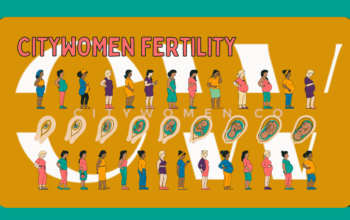
February 14, 2020 at 02:30PM by CWC
Of all the factors to consider before making a life-altering decision—like starting a business or ending a marriage—your future ability to get affordable medical care shouldn’t be one of them. But that’s exactly the case for many Americans today. As Medicare for All advocate Sen. Bernie Sanders recently pointed out, it’s not uncommon for people to stick it out in jobs and relationships that don’t serve them because they can’t afford to lose the health insurance benefits they receive through their employer or partner.
Psychotherapist Haley Neidich, LCSW, is among the 60 percent of Americans who rely on employer-sponsored insurance—either their own or their partner’s—for coverage. For years, she juggled a part-time, private therapy practice and a full-time tech industry job with benefits. But when she suffered a miscarriage in 2019, she realized that the stress of her corporate gig was having a detrimental impact on her wellbeing. “After a short but complicated pregnancy, I began to realize how much I needed to prioritize my mental health and my family. But I was afraid to lose my health insurance, especially given how complicated my pregnancy had become and the fact that we want to grow our family,” says Neidich. She didn’t think she had the option to enroll as a dependent on her partner’s insurance, as they aren’t married. So she was left to make a tough decision: Keep her corporate health insurance while pushing herself towards burnout, or cut back on her hours and switch to a more expensive health-care plan with less comprehensive coverage.
Experts call this phenomenon “job lock,” and in many ways it’s a threat to the very freedom that our country is based on. “It’s not just anecdotal. Economists and health policy analysts understand that if you have a system based primarily on employment based insurance, that in and of itself will create job lock,” says Gerald Kominski, PhD, professor of health policy and management at the UCLA Fielding School of Public Health and senior fellow at the UCLA Center for Health Policy Research. “It blocks people from leaving jobs.”
While there hasn’t been much research on job lock since the Affordable Care Act was enacted in 2010, some data does exist. A 2015 report by the AARP states that workers in jobs with employer-provided health insurance were 15–25 percent less likely to change jobs than workers in jobs without employer-provided insurance, with job quality and worker characteristics being equal. The report also claims that married men whose spouses have employer-provided insurance—and who, theoretically, would be able to enroll in that insurance—were more likely to change jobs than those who didn’t.
“Economists and health policy analysts understand that if you have a system based primarily on employment based insurance, that in and of itself will [block] people from leaving jobs.” —Gerald Kominski, PhD
ADVERTISEMENT
ADVERTISEMENTKate Spade Autumn/Winter Sale |
It’s safe to say that the same would apply for women, especially given that women have more interactions with the health care system over their lifetimes than men—one explanation, perhaps, for why women are less likely than men to go without health insurance. “Men—particularly young men, but men in general—see themselves as not needing health care and as a result forgoing health insurance even when it’s readily available,” says Dr. Kominski.
Research shows that health care also impacts women’s relationship decisions, particularly when they depend on their partner for coverage. A 2015 study in the Journal of Marriage and Family looked at a sample of 17,338 people and found that about 44 percent of married women were dependents on their partner’s insurance, compared with only 16 percent of married men. Both men and women who were insured through their spouse’s plans were almost 70 percent less likely to divorce than those with their own insurance. On the other hand, divorce rates were highest among women who had access to their own health insurance.
Cady Darago, a self-employed marketing executive, is currently going through a divorce and struggling with the prospect of being dropped from her husband’s health insurance once the papers are signed. “I’m getting [policy] quotes that are over $300 a month for insurance that has, like, a $10,000 deductible and only covers catastrophic issues,” she says. “If I have anything that’s remotely similar to what I have now on my husband’s insurance, I’m looking at close to $1,000 a month. I’m relatively healthy, but if I’m actually sick I go to the doctor—I don’t wait to see if something gets worse, because then the chances of needing the doctor for something scarier in the long term is less.”
Of course, as Dr. Kominski points out, there are many other economic and social variables that influence a person’s decision to leave a job or divorce, with health insurance just being a small piece of the puzzle. It’s also worth noting that the research cited above used data that was collected before the Affordable Care Act was fully rolled out, so these statistics would likely be different today. Indeed, the number of uninsured women in the US fell by nearly half from 2010—when the Affordable Care Act was signed—and 2016. Another study showed that once parents were allowed to keep their children on their insurance plans until the age of 26, self-employment among those aged 25 and under substantially increased. “Employment-based insurance continues to decline and overall insurance has increased, so I would say that the Affordable Care Act has clearly opened up opportunities for people outside of the employment-sponsored insurance market,” says Dr. Kominski.
“The ramifications of feeling trapped due to health insurance, whether in a relationship or a job, can be a deeply oppressive experience, especially for individuals with chronic illness who would be sick or dead without their health care.”— Haley Neidich, LCSW
Even so, there’s no doubt that people are still locked into jobs and relationships for the sake of their health-care coverage, which can have seriously dire consequences—especially if they’re in a toxic or abusive situation. “The ramifications of feeling trapped due to health insurance, whether in a relationship or a job, can be a deeply oppressive experience, especially for individuals with chronic illness who would be sick or dead without their health care,” says Neidich. “The sort of anxiety that this instills in folks when they are not honoring what is best for them is exactly the kind of stress that only worsens health and mental health outcomes.”
So what’s the answer for this problem? Some experts believe a solution to job lock requires cutting the cord between employment and health care through a universal health care system such as Medicare for All—a proposed policy being championed by Democratic presidential hopefuls Senator Sanders and Senator Elizabeth Warren. If the Medicare for All Act of 2019 were to pass, every single American would automatically receive free coverage under Medicare—the federal health insurance system that currently serves those age 65 and over—while effectively doing away with private, employer-based insurance.
“Universal health care does eliminate any concern that someone would have about having to get a job in order to have health insurance,” says Dr. Kominski. “One of the ways we reinforce this notion that health care is a privilege is saying you have to get a job, and not only do you have to get a job, but you have to get a certain job at a certain kind of company because there are lots of companies that don’t offer health insurance.”
Dr. Kominski points out that a single-payer Medicare for All policy isn’t the only way to achieve universal health care. For instance, the United Kingdom and Spain have a socialized health care model wherein the government owns, operates, and pays for all health care services. But the through line among them all is that every citizen has access to free or affordable health insurance, regardless of their employment or marital status.”Until we figure out a way to get everybody enrolled in at least some program,” says Dr. Kominski, “we’re going to continue to have these problems.”
Before you cast your vote in the Democratic primaries, check out where the leading candidates stand on the Medicare for All issue. Need to take a mental-health day first to clear your head? These pro tips will help you get the most out of your PTO.
Author Erin Magner | Well and Good
Selected by CWC

ADVERTISEMENT
ADVERTISEMENTUp to 30% off Gift Sets |







